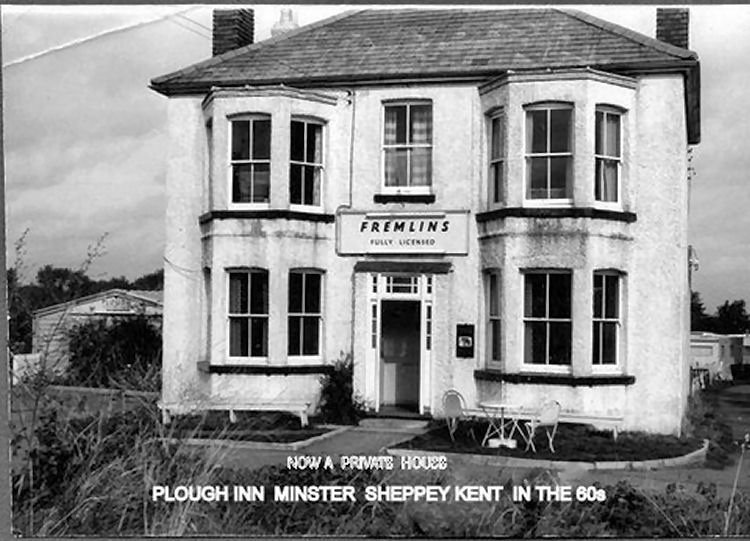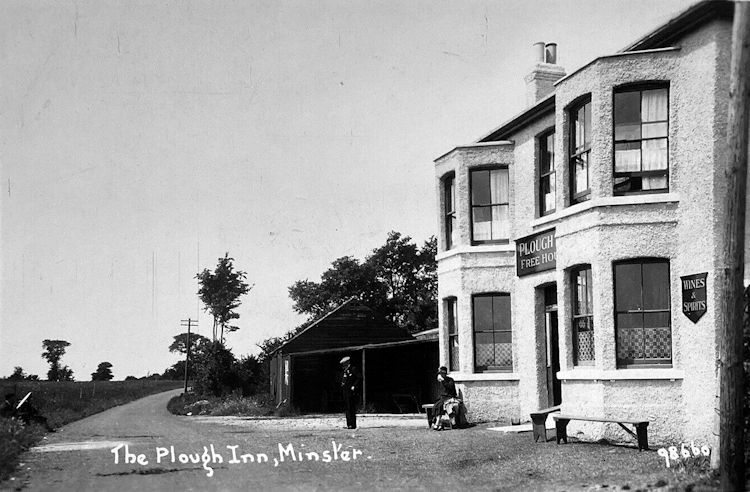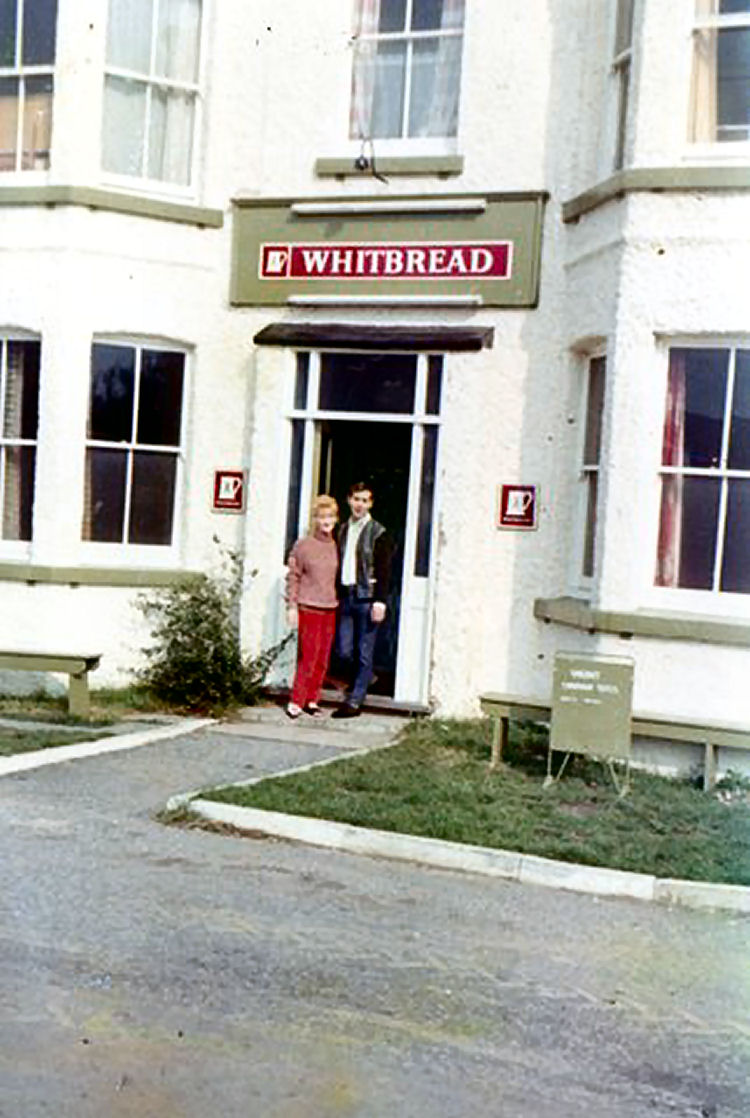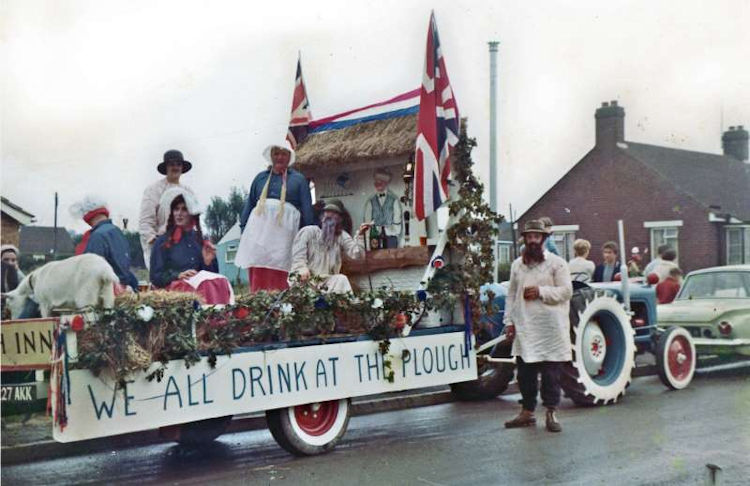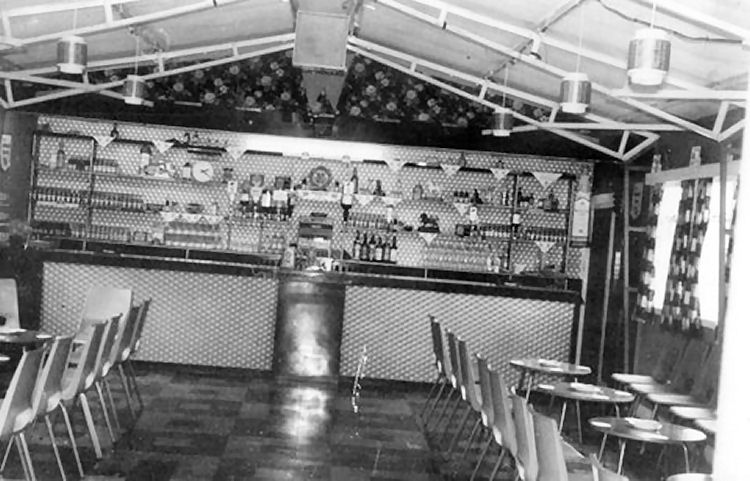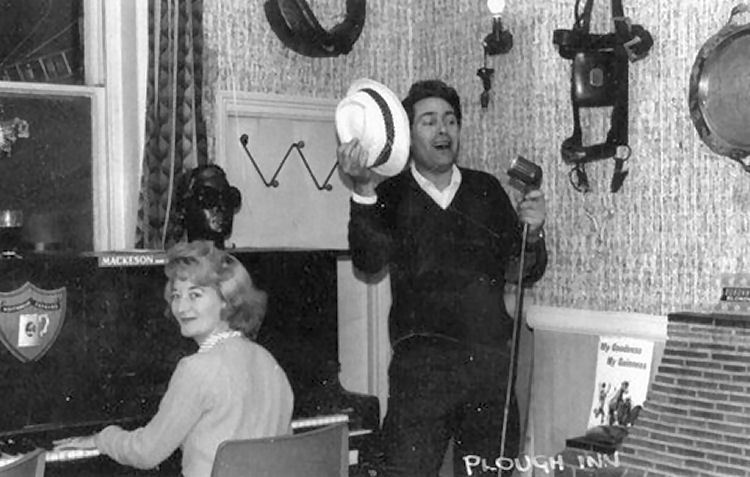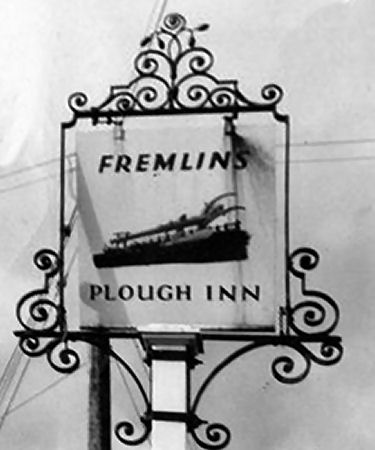|
Gravesend Reporter, North Kent and South Essex Advertiser, Saturday 7th August 1897.
The Barge fatality. The bodies found. Inquests and
funeral.
On Saturday and Sunday last, the bodies of Henry Austen (owner) and
Frederick Webb (captain), who were drowned during the sailing barge race
around the Mouse light, on Sunday, 15th ult., were recovered, the one by
a trawler near the South Ooze buoy, and the other of the Isle of Thanet.
The particulars of the said occurrence were reported in our last issue,
and no good service will be rendered by recaptulating them.
Inquest on the late owner.
The inquest on the body of the late Mr. H. Austen was held at the "Bell
Inn," Leigh, near Southend, on Tuesday afternoon, before Mr. C. V.
Lewis, coroner for South Essex. Mr. Tomlin was foreman of the jury, who,
having viewed the body (which was in a very decompose state), heard the
following evidence:-
George Austen, residing at 8, London Road, Northfleet, said he was a
brickmaker, and the body now lying at those premises was that his son,
Henry Hezekiah Austin, who was 32 years of age. Deceased was manager to
Messrs. Tolhurst and Sons, of Northfleet, and was a barge owner, the
ill-fated Victoria also belonged to deceased. Previous to Sunday, 28th
July, they had been two barge races, one on the Medway and the other on
the Thames, and the race on the 25th, he believed, had arisen out of the
result of the former races. Witness said on the day in question he was
not on either of the barges which were racing, but on his own barge.
Deceased had been apprenticed to the water, and he was used to sailing.
He (witness) was sent for on Saturday, and identified the body.
William Lawrence, living at 21, Factory Road, Northfleet, said he was a
bargeman, and on Sunday, 25th July, was on the barge Victoria during a
race from Lower Hope to the Mouse lightship and back to Gravesend. There
were five other persons on board, including the deceased, who was
sailing her. All went well until the third board back was taken when
just below the West Ooze buoy. The wind at the time was blowing strong,
and the barge had full canvas set; so much so that she was laying down
well in the water, which was over the deck at times. This was not
uncommon when blowing hard. There was no ballast on board, as it was one
of the conditions of the race. In answer to the Coroner as to how he
thought the barge turned over, witness said the winds giving a stronger
puff and the barge lying down in the water with part of her sheet under,
before she had time to right herself a second puff came and over she
went. She then floated bottom upwards. Three of the crew were thrown
into the water, whilst the others managed to get on her bottom as she
heeled over. The tug Frank, which was accompanying the race, came to the
assistance and took the three men off, and witness, who was holding onto
the rudder. There were five barges in the race, and he believed the
Victoria was lying second when the accident happened. There was no water
in her before rounding, as witness had previously tried to pump her out.
There was no ballast of any kind.
William Cotgrove, fisherman, of Leigh, said on Saturday morning last,
when sailing about 4 miles below the Nore lightship, he saw a body
floating on the water. He took it into his boat and at once brought it
to Leigh and handed it over to the custody of the police.
P.C. William Davidson, stationed at Leigh, said at about 2:30 on
Saturday last, he received the body from the former witness at Bale
wharf. Upon searching the clothing he found £14 in gold, a two shilling
piece in silver and one penny in bronze, a gold signet ring (by which
the deceased was identified), a leather purse and bunch of keys. As far
as witness could tell, there were no marks of violence on the body.
Mr. Austen said the only thing he found in the cabin of the barge when
righted was deceased's gold watch and chain, which had become entangled
round a post.
The Coroner, in summing up, remarked that the evidence was very clear.
The barge appeared to have gone over through carrying too much canvas,
and a sudden squall. He was sure the jurymen all sympathized with Mr.
Austen and all the family in their heavy bereavement.
The jury returned a verdict of "Accidental Death."
The Forman then tendered to Mr Austen a note of condolence, and also to
the friends of the captain, remarking he hoped it would be the last time
they would hear of races taking place on a Sunday. It was the first time
in his recollection that he had heard of a barge race in the Thames on
Sunday.
Removal of body.
The body was first placed in an inch elm shell and then in a one and a
half inch polished oak coffin, with brass fittings, under the
superintendence of Messrs. Thorpe and Sons, undertakers, Leigh, and
brought to Gravesend for the 7:30 train the same evening, being conveyed
by special boat from Tilbury to West Street pier, where it was handed
over to Mr. Fisher, Undertaker, Northfleet.
Inquest on the Captain.
Mr. W. J. Harris, county coroner, conducted the enquiry into the death of
Frederick Webb, master of the barge Victoria, it being held at the
"Plough Inn," Minster, Sheppey, on Tuesday afternoon. Mr. John Smith
Beale was foreman of the jury. The following evidence was adduced:-
William Alfred deposed:- I am a boatman in the coastguard services,
stationed at East End Lane, Minster, Sheppey. On Sunday afternoon last,
about 4 o'clock, I was on duty on the cliffs when I saw the body viewed
by the jury floating down on the tide. The tide was taking it out to
sea. Another coastguardsman, named James Amery, and I went down on the
beach and swam out and brought the body to the shore. The body was
carried up the cliffs by us and the other coastguardsmen from our
station, and brought to the house.
Information was given to P. C. Fuggle when we brought it on shore,
and before it was removed here.
The Coroner commended the conduct of the coastguardsman.
George Edmund Smith deposed:- I am a waterman and lighterman, and
reside at 6, Northcote Road, Gravesend. I have seen the body of the
deceased, which is that of Frederick Webb, of 23 Factory Road,
Northfleet. Deceased was captain of the barge Victoria, of Rochester,
and was about 40 years of age.
The Coroner:- I'm afraid there's a large family left.
Witness:- No, sir; he has left a wife and one child.
The Coroner:- I'm glad to hear that are no more children.
The Forman:- It was reported in Sheppey that there were 8 children.
Witness, continuing:- On Sunday, 25th July, I was acting as jib-sheetman
on board the Victoria, which was engaged in a race that day from
Gravesend round the Mouse Lightship and back. The race was made between
the owners of five barges. The owner of each barge engaged had charge of
and steered his own vessel. Mr. Henry Austen was the owner of the
Victoria, he was himself steering on this occasion. He was drowned. We
ran very comfortably until the Mouse was rounded. It had been blowing
hard all day. After coming round the Mouse and getting the sheets down,
the weather became very squally, and the vessel made to tacks. In the
third tack standing from the Middle Ooze buoy, we caught a very stiff
squall. The barge could not recover itself and capsized, throwing the
owner, the deceased and the mate into the water. There were three others
on board, and they got over her side and climb to the bottom. I was one
of them. We were holding on for a quarter of an hour or twenty minutes,
when the tug Frank, the committee boat, came up. The last time I saw the
deceased he was clinging on the mizen split. I saw the owner floating
away face downwards within three minutes after the boat capsized. When
the tug came alongside, I saw the deceased was nearly exhausted, and
called the attention of the crew to the of the tug to him. They caught
him by the sleeve of his guernsey, but it gave way and tore down to the
wrist. They fixed his right hand in the hook of the hitcher, but he
would not let go the sprit with the other hand.
The tug dropped astern with a lurch, drawing the hitcher from his
hand. Then a young man dived from the tug and got hold of the deceased's
body, and both sank. Another dived from the tug and got the two men
adrift; and as he did so the deceased sank. The young fellow made a dive
for him and fetched him to the service again. The deceased was then
quite dead, and the man had to let him go to save the one who dived
first. The tug steamed ahead, picked up one man, and also the second man
from the bottom of the barge. Owing to the heavy sea, the tug could not
get near enough to rescue me at the same time; but as she steamed ahead
her crew threw a life-buoy to me, and I threw it to the second man who
dived over in order to save him, as he was getting exhausted.
Another man was taken from the bottom of the barge, and the tug then
steamed up and I was hauled on board. I was afterwards landed at
Gravesend.
The Coroner:- All you men seemed to have behaved remarkably well. Do
you know the names of the two men who dived off the tug and behaved so
gallantly?
Witness:- No, sir.
The Coroner:- I should like to have known them, so that their names
could be published to the world. They certainly deserve to be known.
The Foreman:- I am sure we are all greatly indebted to this witness
for the very clear and straightforward manner in which he has
given his evidence. He has detailed everything so clearly that nobody
could misunderstand it.
Witness:- It's only by God's mercy we are here today. One of the
other men is also here with me.
The Foreman:- We must heartily congratulate you upon your narrow
escape. You behaved very gallantly indeed.
Witness:- Thank you, sir.
Replying to a juryman, witness said they were lose hauling into the
wind when the accident happened.
James Dye, captain of the sailing barge Rathbale, belonging to Mr.
Austin, of Northfleet and owner of the Victoria, was then called, and
the Coroner read over the evidence given by the previous witness, and
asked if he could throw any further light on the unfortunate disaster.
Mr. Dye:- The whole statement is perfectly true.
The Coroner:- I should like to know the names of the two young men
who behave so gallantly.
Witness:- I have no doubt I can get them if you wish it.
The Coroner:- It would not assist this enquiry, but I think their
names ought to be known. The Gravesend borough will hold an enquiry on
the body of Mr. Austen this evening, and I hope those young men will be
there, so that their names might be known.
Mr. Dye said he would convey the Coroner's remarks to the young
fellows whenever he met them.
The Coroner said the story of the witnesses was extremely clear, but
he could not help expressing his regret that the owners of vessels
should desecrate the Sabbath by holding sailing matches on Sundays. He
would say a great deal more on the subject, but this was not a court of
morals. The evidence was very clear, and it was one of those unfortunate
mishaps where no blame was attached to anybody.
The jury returned a verdict of "Death by misadventure," and added a
rider that the Coroner should bring the conduct of the coast guardsman
under the notice of their superior officer, in the hope that their
services should be rewarded in a practical manner.
The Coroner said it would give him the greatest possible pleasure to
carry out the wishes of the jury; unfortunately, his hands were tied in
these matters, and he could only give the men 5s. for the recovery of
the body, in addition to a shilling each for attending as witnesses. He,
however, hoped the men's officer would do what he (the coroner) had no
power to do.
|
